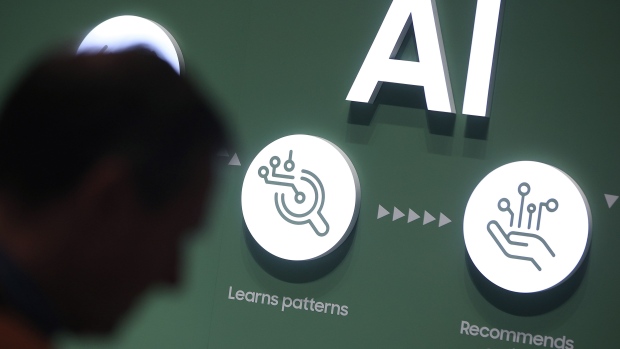Dec 6, 2023
EU Nears Deal to Regulate ChatGPT, Other AI Tech in Landmark Act
, Bloomberg News

(Bloomberg) -- After nearly 24 straight hours of negotiations, European Union representatives remain divided over a plan to adopt what would become the most comprehensive regulation of artificial intelligence in the western world.
Negotiators from the European Parliament and 27 member countries will resume their discussion Friday morning, EU internal markets chief Thierry Breton said in a post on X, as they try to resolve deep splits over issues including biometric surveillance.
Negotiators made some progress, including on a provisional deal on generative AI tools — the kind capable of producing content on command. But it’s unclear whether the negotiators will be able to agree on a draft, said people familiar with the situation, asking not to be identified because the information isn’t public.
The contentious, around-the-clock meeting is arguably the most powerful example yet of the challenge that world leaders face in balancing the benefits of AI technologies with the need to firmly regulate them. It’s a dilemma that has divided world leaders and tech executives alike as generative tools such as OpenAI Inc.’s ChatGPT and Google’s Bard continue explode in popularity.
Talks began on Wednesday afternoon and dragged into Thursday as policymakers attempt to finalize the so-called AI Act before elections next year usher in new leadership that could stall efforts.
Biometric surveillance became a significant sticking point on Thursday. While the parliament backed a complete ban on live facial scanning technology, EU countries have proposed a compromise that would allow for AI-powered cameras that identify people suspected of committing crimes and biometrically categorize people based on race, the people with knowledge of the discussions said.
A deal is critical to clearing landmark AI policy that will — in the absence of any meaningful action by the US Congress — set the tone for the regulation of generative AI tools in the developed world. The act would make the EU the first government outside of Asia to put firm guardrails on the technology.
Policymakers have been working for months to finalize the language in the AI Act and get it passed before the elections in June.
Read More: EU Races to Reach a Deal on World’s First Major Set of AI Rules
The EU — like other governments including the US and UK — has struggled to find a balance between the desire to promote and protect its own AI startups, such as the French unicorn Mistral AI and Germany’s Aleph Alpha, and potential societal risks.
Read More: EU’s Flagship AI Rules Risk Ending Up in Limbo: Brussels Edition
That has proven to be a key sticking point in negotiations, with some countries including France and Germany opposing rules that they said would unnecessarily handicap local companies. Even if a deal is reached on Thursday, technical details in the act would need to be hammered out in a series of follow-up meetings.
EU policymakers had proposed a plan that would require developers of the type of AI models that underpin tools such as ChatGPT to maintain information on how their models are trained, summarize the copyrighted material used and label AI-generated content. Systems that pose “systemic risks” would have to work with the commission through an industry code of conduct. They would also have to monitor and report any incidents from the models.
©2023 Bloomberg L.P.





